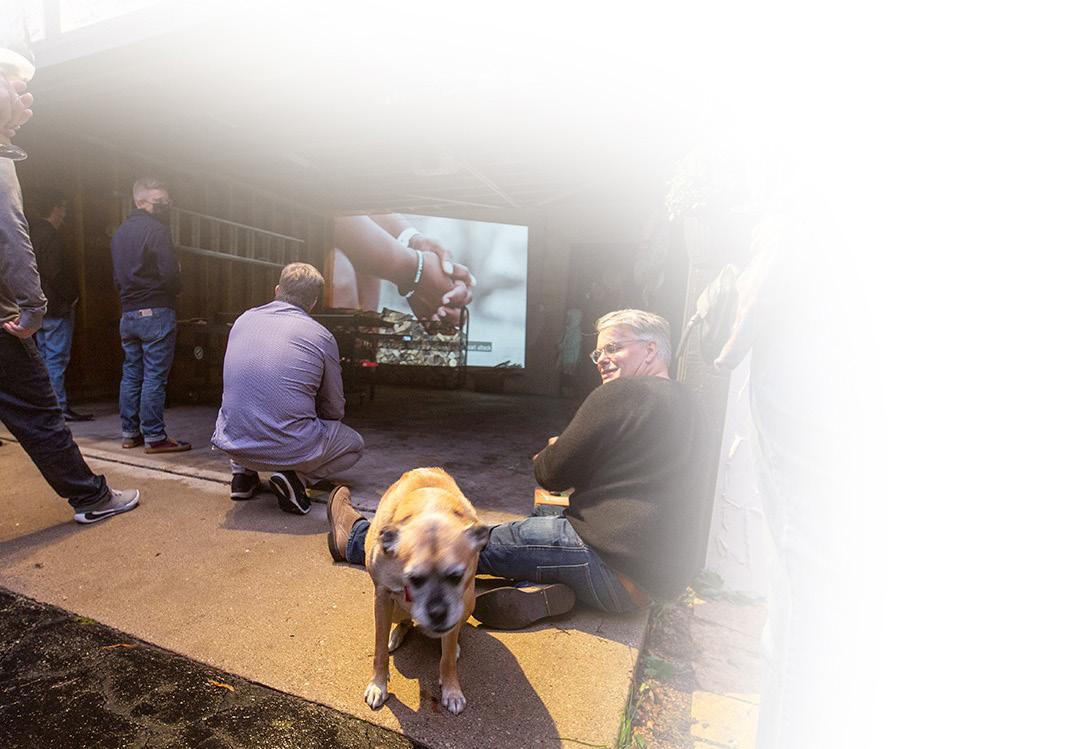
4 minute read
Successful verdicts & transactions
successful RECENT USLAW LAW FIRM VERDICTS & transactions
VERDICTS
Adler Pollock & Sheehan, P.C. (Providence, RI)
Adler Pollock & Sheehan, P.C. successfully represented Encompass Health in its Certificate of Need Application to establish a 50-bed Rehabilitation Hospital Center in Johnston, Rhode Island. On August 26, 2020, the Director of the Rhode Island Department of Health, Nicole Alexander-Scott, M.D., MPH, issued her decision approving the Application. Encompass’ proposal will establish a specialty hospital facility to provide physician-driven, intensive inpatient rehabilitative care, requiring more than one therapy modality, for medically complex patients. The $42.5 million project will provide approximately 100 union construction jobs in the short term and result in over 160 full-time employees. The AP&S team of attorneys Patricia K. Rocha, Richard R. Beretta, Jr., and Leslie D. Parker worked with Encompass to prepare the extensive certificate of need application, present at four Health Services Council meetings, respond to numerous public comments and the Rhode Island Department of Health’s expert consultant, and navigate the governing statutory and regulatory issues. As a result of these efforts, Encompass will now be able to provide access to its proven quality inpatient rehabilitation services to Rhode Island patients and their families – including those suffering strokes, traumatic brain injuries and neurological disorders.
Baird Holm LLP (Omaha, NE)
On behalf of Union Pacific Railroad Company, Baird Holm attorneys Scott Moore, Allison Balus, and David Kennison participated in an appeal to the U.S. Court of Appeals for the Eighth Circuit that reversed a district court’s order certifying a class action under the Americans with Disabilities Act (ADA). The Eighth Circuit held that class certification was not warranted given the many individualized inquiries necessary to adjudicate liability under the ADA. Union Pacific successfully argued that determining whether its fitness-for-duty policy was job-related and consistent with a business necessity depends on each individual’s unique circumstance and cannot be determined on a class-wide basis.
Duke Evett, PLLC, (Boise, ID)
Keely E. Duke of Idaho member firm, Duke Evett, PLLC, successfully defended a local hospital system in a case challenging the Chargemaster billing practices of the client’s Emergency Department. This is a nationwide battle hospital systems are fighting across the country.
In the case, the plaintiffs alleged that the hospital system could not bill uninsured patients at its customary Chargemaster rates. The plaintiffs sought declaratory relief requesting the District Court review the hospital system’s billing agreement and find that the hospital was only entitled to bill and seek collection of the reasonable value of the treatment provided to them and other similarly situated self-pay patients.
The District Court granted Summary Judgment in favor of Duke Evett’s client and the Idaho Supreme Court unanimously affirmed that decision in Duke Evett’s client’s favor.
Franklin & Prokopik, P.C. (Baltimore, MD)
Franklin & Prokopik, P.C. attorney Michael T. Bennett successfully defended a workers’ compensation claim for benefits by convincing a jury that the claimant’s actions amounted to willful misconduct. The case was tried before the Honorable Dwight Jackson in the Circuit Court for Calvert County on February 13 and 14, 2020. The jury’s decision saved the employer, a treatment facility that provides mental health services exclusively for first responders, considerable exposure due to the nature of the injuries involved in the accident.
The claimant was employed as a nursing assistant and was attempting to gain access to the nurses’ station to assist a patient who had just finished treatment. The door that normally would have been used to gain access to the station was locked, resulting in the claimant being separated from the station by a barricade that was approximately three feet tall and four feet wide. The evidence showed that there were numerous options available to the claimant to unlock the door and safely gain access to the station, including three master keys within just a short walk. Instead of exploring these options, the claimant decided to transverse the barricade with the assistance of the patient, and in the process, ended up with numerous injuries that required multiple surgeries.
Generally, it can be very difficult for employers and insurers to prevail on a willful misconduct defense for several reasons. For starters, there is a statutory presumption that an injured worker did not engage in willful misconduct. If the defense can overcome this presumption, they must then prove that an accident meets five separate and distinct elements. If any of those elements fail, so does the entire defense of willful misconduct.
One of the five elements of willful misconduct is that the employer has a rule prohibiting the action that caused the accident. This particular element forced the defense to get creative as the employer did not have an explicit rule against employees climbing over barricades. Instead, Bennett argued to the jury that there was an implied rule against this specific action. To buttress this position, the defense introduced testimony from witnesses that they collectively have never seen or heard of anyone climbing over a nurses’ station while working in the field. The jury agreed with Bennett in convincing fashion, as it took just 15 minutes to reach its verdict.








